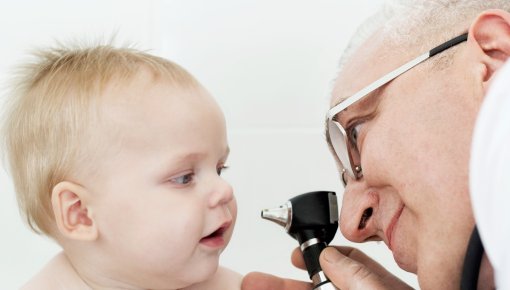Will antibiotics help relieve symptoms in babies and toddlers?

Middle ear infections (otitis media) will usually clear up within a few days, even without treatment. But antibiotics can speed up recovery in children under two years of age who have an infection in both ears. They may also help if the infected ears are leaking fluid.
Middle ear infections can cause earache and fever. These symptoms can be treated with painkillers like acetaminophen (paracetamol) or ibuprofen. Whether antibiotics are an appropriate treatment will depend on what other symptoms the child has. Antibiotics can only help treat bacterial infections. Children with specific symptoms benefit from them, but antibiotics will hardly help in children without these symptoms.
